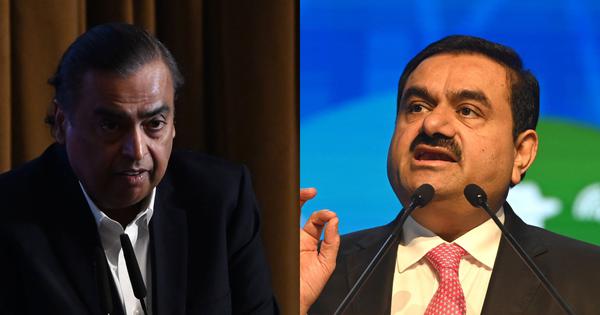Recent court decisions raise concerns about transparency and accountability for influential business figures in India.
The recent Vantara verdict and a September 6 ruling in an Adani case have raised significant concerns about the public’s right to information regarding the activities of individuals whose companies exert considerable influence in India. The Supreme Court’s decision, issued in response to public interest litigations concerning Vantara, the wildlife rescue center operated by the Reliance Foundation, has sparked debate. Vantara, which houses approximately 2,000 species globally, has faced allegations of illegal animal acquisition, unsuitable environmental conditions in Jamnagar, and financial irregularities.
In a swift judicial process that unfolded over just three hearings, the Supreme Court concluded there was “no foul play” involved in Vantara’s operations. This rapid progression through the legal system was notable, especially given the often slow pace of judicial proceedings in India. On August 25, the court established a Special Investigative Team tasked with conducting an independent assessment of Vantara’s compliance with the Wildlife Protection Act and other relevant regulations. Despite the complexity of the investigation, the team submitted its findings within 18 days.
On September 15, the Supreme Court closed the matter, expressing satisfaction with the findings and asserting there was “no contravention of law.” However, the court also sided with Vantara’s legal team, ruling that making the report public could lead to unnecessary speculation. As a result, the report’s contents, save for a summary, were kept confidential, with only Vantara receiving a complete copy. Furthermore, the court prohibited any future complaints based on the same allegations, effectively insulating Vantara from further scrutiny.
The court’s remarks suggested a reluctance to revisit issues associated with Vantara, reflecting an inclination to protect what it deemed to be a source of national pride. This decision, while concluding the case, left unanswered questions about the extent to which the allegations were addressed. The court even encouraged Vantara to pursue legal remedies against any publications it deemed defamatory, signaling a potential chilling effect on journalistic investigation.
In a parallel case involving Gautam Adani’s Adani Enterprises, a civil court in Delhi issued an ex-parte injunction on September 6, which has raised further alarm. Following this order, the Ministry of Information and Broadcasting directed the removal of numerous online posts and videos deemed defamatory towards Adani Enterprises. This injunction allowed the company to act against parties not explicitly named in the case, granting it significant latitude to suppress criticism without a prior court review.
Legal experts have criticized the court’s approach, warning that such measures could threaten free expression. Although a subsequent ruling by District Judge Ashish Aggarwal in the Rohini Courts temporarily set aside the injunction concerning certain journalists, the broader implications of the John Doe clause remain intact. The recent court decisions, including the Vantara verdict and the Adani injunction, appear to provide India’s wealthiest individuals with protection from critical inquiry, raising profound concerns about transparency and accountability in a democratic society.








